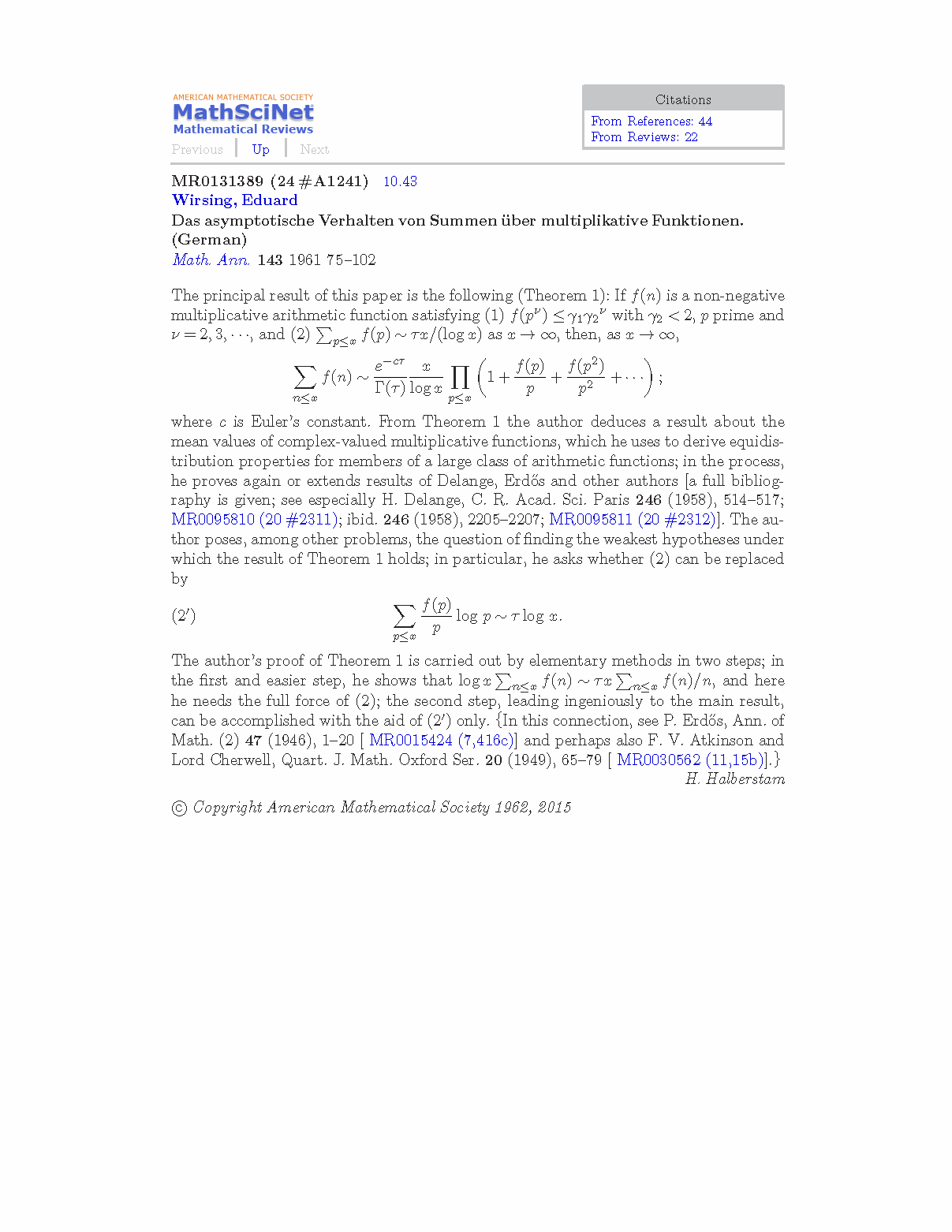Suppose I have a multiplicative function $f(n),$ and I want to understand the behavior of $$ \sum_{n<x} f(n^k), $$ for some integer $k.$ This seems like it should be easy (since the Dirichlet series seems to be just evaluated at $ks$), but it can't be too easy, since, for example, for $f(n) = \mu(n),$ $f(n^k)$ is identically $0$ for every $k>1.$
EDIT I have no idea why this question engendered such a negative reaction. The perfect answer was given by socalledfriendDon in the comments to the one answer (this is now the accepted answer): under certain conditions, you have an asymptotic formula for average value of multiplicative functions, as given by Wirsing's theorem. Certain conditions are: positivity, having a mean on primes, and having slow growth on prime powers.
For the function $f(n) = \tau(n^k)$ this gives an average value of $\log^k(x).$ Many of the pooh-poohers gave completely incorrect references. One gave a reference to Erdos' paper from 1952, where Uncle Paul analyzes the behavior of $\tau(P(n))$ where $P$ is an irreducible polynomial (AND, while Erdos' result is correct, his proof is buggy). A better reference (which no-one gave) is a 1939 paper by van der Corput, but that gives bounds, and not asymptotics.

